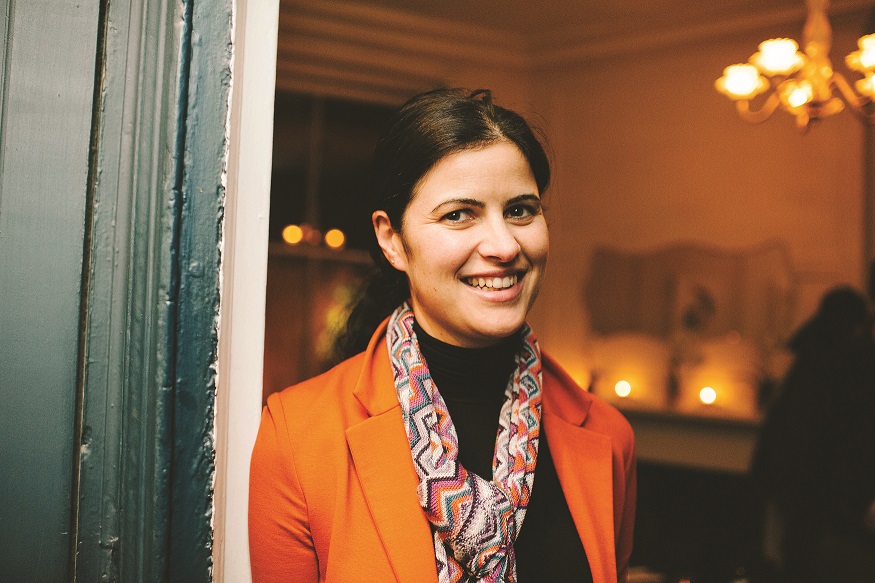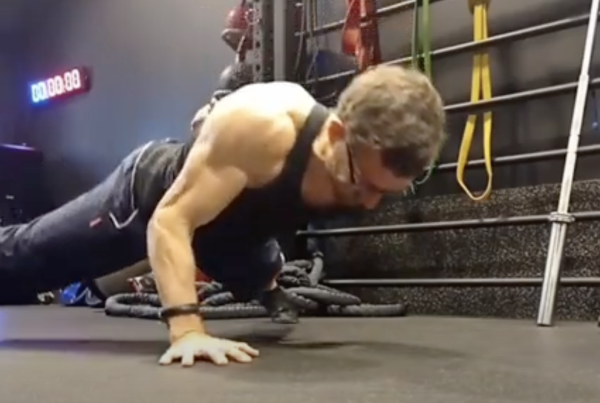The team over at Beeja Meditation hosted a mass meditation event today (21 May), live in London at 8.30am and then in Vancouver at 8.30pm (PDT). Founder Will Williams guided meditation at London’s Searcys at the Gherkin before travelling to Vancouver where the fun will continue LIVE from the Museum of Anthropology.
If you’re not able to make an event this week week, be sure to check out a previous FitPro blog, which detailed the apps that could be useful to help with mindfulness:
fitpro.com/blog/6-apps-to-help-the-mind/
The London Mindfulness Project
Dr Cinzia Pezzolesi, clinical director at The Mindfulness Project, defines mindfulness and offers some useful advice on how to practice mindful behaviour.

Mindfulness is the ability to observe your emotional and physical states, and to appraise the environment around you without imposing judgment on the quality or meaning of your experience.1
In the gym scenario, being mindful allows the client and trainer to be aware of any negative thoughts, anxiety, physical discomfort or tension in the body that may impair the success of a training session.2
The mindful trainer is aware of the impact they have on the client, on how they react to the client’s specific personality, and on the client’s physical and emotional challenges. Mindfulness allows the trainer to choose to respond wisely to the stimuli being presented, for example, for a client who is experiencing performance anxiety (i.e., feelings of fear of being judged based on one’s fitness level and/or uncertainty involving equipment or classes), or social anxiety (i.e., fear of embarrassing themselves when exercising with unfamiliar people or being subject to possible scrutiny by others).3
In practice, mindfulness helps us to recognise thoughts as just thoughts – not facts or the entire reality – but as simple mental events and feelings that are temporary and do not have to affect your performance. With time, one learns to direct the attention away from unhelpful thoughts and to go back to one’s body and the physical exercise with a calmer, clearer mind. Becoming skilled at mindful awareness requires practising mindfulness exercises. These can be learnt formally by attending an eight-week mindfulness course: londonmindful.com
Here are some tips to kick-start your mindfulness practice with your clients:
-
Practise mindfulness while stretching; notice the specific sensations in each muscle as you stretch and how the muscles soften during the stretching
-
Notice your breath before you exercise, focusing on the physical sensations of the breath in the body, and notice how the chest expands and contracts, or how the belly rises and falls for a few moments
-
If anxious thoughts are present, invite your client to respectfully acknowledge the thoughts and feelings, to explore how their body reacts to such thoughts, and to gently move the attention back to their body and to the muscle they need to use to start exercising again
The London Mindfulness Project is running a number of mindfulness workshops and practices throughout the next few months. For more information on its offerings, visit: londonmindful.com/event/calendar/
References
<1> Kabat-Zinn, J. (2013) Full catastrophe living: using the wisdom of your body and mind to face stress, pain, and illness, New York: Bantam Books.
<2> Aherne, C., Moran, A. P., and Lonsdale, C. (2011) The effect of mindfulness training on athletes’ flow: An initial investigation, Sport Psychologist, 25(2), 177-189.
<3> American Psychiatric Association (2013) Diagnostic and statistical manual of mental disorders (5th ed.), Washington, DC.







